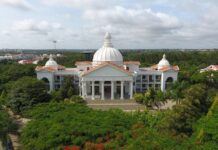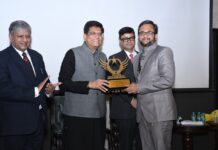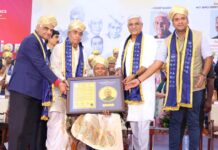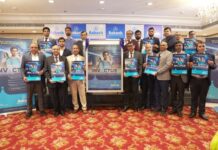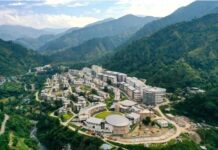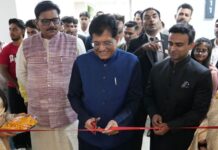Kolkata, June 06, 2020: Maulana Abul Kalam Azad University of Technology (MAKAUT), WB has recently hosted a webinar on ‘The Pandemic View from Space with Geo-spatial Data’. The topic was “Application of Artificial Intelligence on Geospatial Data” which was organized by the Department of Information Technology of MAKAUT. Main initiative of the webinar was to focus on Geospatial Artificial Intelligence, the intersection of geospatial data and artificial intelligence with special emphasis on its applications on monitoring the Pandemic View from Space and it was coordinated by Dr. Somdatta Chakravortty, Head of Information Technology, MAKAUT, WB.
The second webinar of the Geo-informatics series will be held on 6th June, 2020.
The ones those have participated in the summit were not only from the State of West Bengal but also from other States in India and countries such as Spain, United Kingdom, United States, Iran, Pakistan and Germany. Hon’ble Vice Chancellor of the University, Prof.(Dr.) Saikat Maitra has inaugurated the event, where he has elaborately discussed about the applications of Geospatial data in Environment, Society and in our day to day life. It was a privilege to have two very eminent researchers and experts in the field of Geo-informatics: Prof. Antonio Plaza, Professor in the Department of Technology of Computers and Communications, University of Extremadura, Spain and Prof. Sucharita Gopal Professor in the Department of Earth and Environment & Center for Remote Sensing Boston University, Boston. Prof. Gopal deliberated on the subject – Spatializing the Incidence and Mortality of Corona Virus (COVID-19) Pandemic using AI and Big Data Geo-informatics in which she talked about the COVID-19 Pandemic Emerging Research, GIS and Spatial Analysis and AI-Big Data Informatics and had discussed the role of GIS and Big Data in the study of COVID-19 like visualization of disease information, tracking of confirmed cases, AI based prediction and Spatial Models, spatial behavior and decision making like social distancing etc. Also, she pointed out the application of remote sensing sensors and drones for COVID-19, how satellite sensors can detect the change in air pollution level pre and post lock down. On the other hand, Prof. Plaza deliberated on the subject – “Recent Advances in Spectral Unmixing of Remotely Sensed Hyper spectral Data” in which he elaborated on Spectral unmixing as an important technique for the analysis of remotely sensed hyper spectral data. Further, he has discussed several models for spectral unmixing (including linear and nonlinear models) as well as the most recent trends and techniques for unmixing hyper spectral data that include techniques that assume the presence of pure pixels in the data, techniques that generate virtual end members (in order to unmix images with no pure signatures) and deep learning-based approaches for spectral unmixing along with computationally efficient implementations of hyper spectral unmixing techniques in high performance computing architectures such as graphics processing units (GPUs). Practical examples were provided with different data sets collected on different locations around the world.
On the other hand, a very fruitful discussion session was held followed on the deliberations and interesting questions were displayed by the participants. A discussion blog was created in which participants have posted their queries after the webinar. The webinar ended successfully with a short quiz for the participants after which the Certificates were distributed. Geospatial AI, the intersection of geospatial data and artificial intelligence, is thus the new frontier of technological innovation that promises to transform entire business industries. For decades, geographic information systems (GIS) have been used widely to present a view of our world based on geographic and geospatial data. This is a significant revolution, expanding the use of geographic data in a way that promises to disrupt entire industries.
Corporate Comm India (CCI Newswire)




